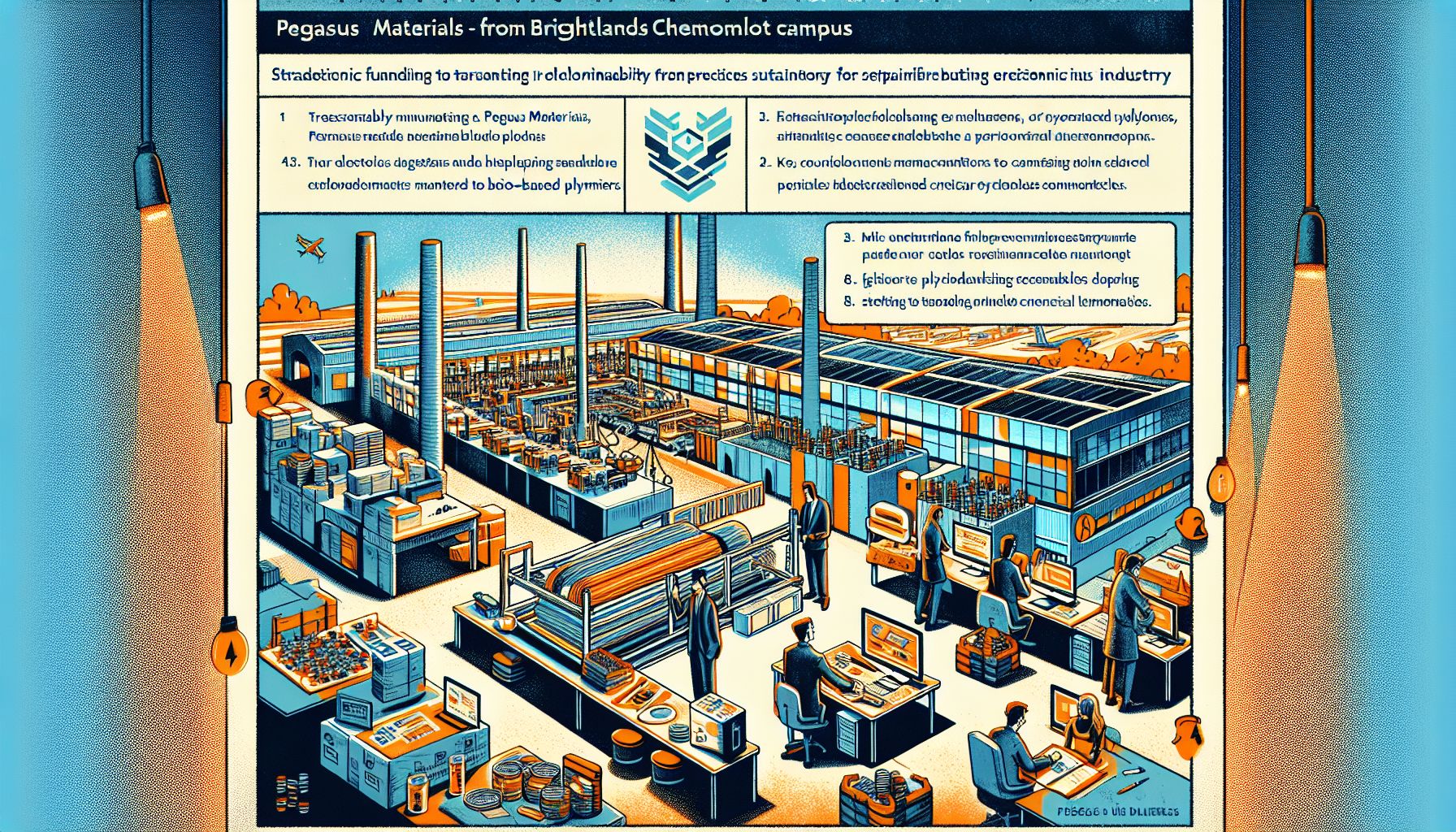Dutch Investment Powers Bio-Revolution: Pegasus Materials Secures Funding for Next-Gen Electronics

Limburg, Thursday, 28 November 2024.
A groundbreaking €75 billion market opportunity emerges as Pegasus Materials receives strategic funding from LIOF and Fibrant to develop sustainable bio-based polymers. Their innovative technology promises to revolutionize electronics manufacturing, from USB connectors to aerospace components, while addressing critical environmental challenges. Operating from the Brightlands Chemelot Campus, this Dutch startup is poised to transform how we produce electronic components, moving away from petroleum-based materials toward sustainable alternatives. The investment marks a significant shift in the electronics industry’s approach to sustainability, as traditional suppliers struggle to meet evolving environmental standards with conventional petrochemical solutions.
The Intersection of Sustainability and Innovation
Pegasus Materials, a Dutch startup situated at the Brightlands Chemelot Campus in Geleen, Netherlands, is at the forefront of a technological revolution in materials science. By leveraging material science, chemistry, and synthetic biology, Pegasus Materials is developing high-performance bio-based polymers designed to replace petroleum-based materials in various industries[1][2]. This innovation is pivotal in the electronics, aerospace, and automotive sectors, where the need for sustainable and high-performing materials is increasingly critical.
Strategic Investments: LIOF and Fibrant’s Commitment
The recent investment from LIOF and Fibrant underscores a growing commitment to sustainable materials innovation. LIOF, through the Limburg Startup Capital Fund, has strategically invested in Pegasus to support their mission of reducing environmental impact through bio-based monomers[1]. Fibrant, known for sustainable chemical solutions, joins this effort, highlighting their dedication to innovation and environmental responsibility[2]. This financial backing will enable Pegasus Materials to intensify collaborations with key players in the high-tech industry and launch their initial products, setting a new standard for sustainability in materials science.
Bio-Based Polymers: A Sustainable Future
Bio-based polymers offer significant environmental benefits over traditional plastics. Derived from renewable resources, these polymers reduce reliance on fossil fuels and minimize greenhouse gas emissions[3][5]. Pegasus Materials’ approach aligns with broader industry trends towards sustainable innovation, as bio-based polymers can be used in electronics applications like USB connectors and memory modules, as well as in 3D printing for aerospace and automotive spare parts[1]. This not only addresses the environmental impact of ‘forever chemicals’ but also meets the performance demands of modern industries[2].
Implications for the Electronics Industry
The electronics industry, traditionally dependent on petrochemical building blocks, faces increasing pressure to adopt sustainable practices[3]. Pegasus Materials’ bio-based polymers represent a transformative solution, providing the durability and adaptability required in electronic components while being environmentally friendly. The company’s innovations are particularly relevant as the demand for eco-friendly components grows, driven by consumer awareness and regulatory pressures[3][5]. This shift is part of a larger movement towards circular economies and sustainable material use, promising to reduce electronic waste significantly.

